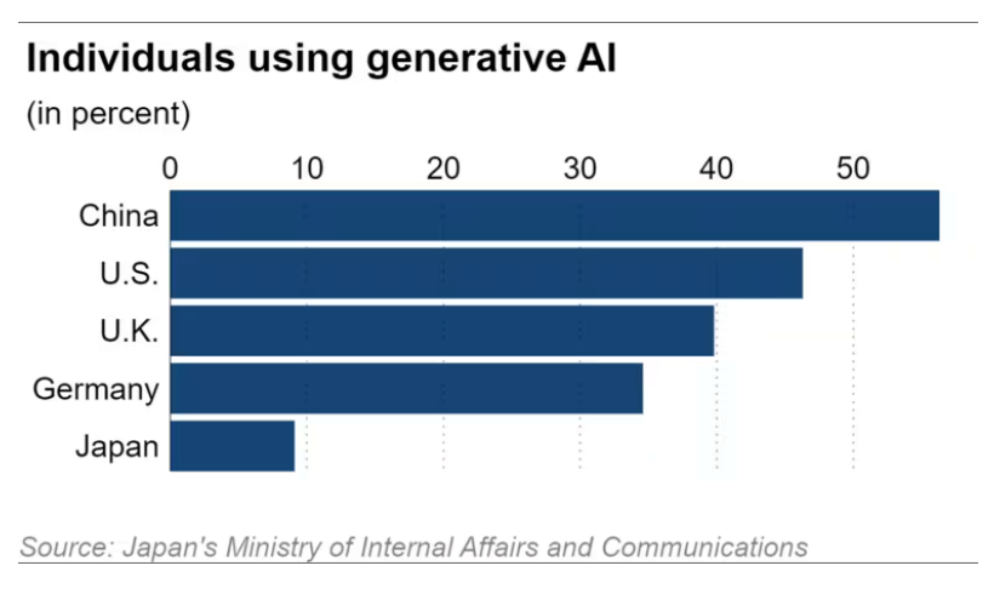
Over 70% believe new tech can ‘help enhance efficiency and address labor shortages’ – but also have concerns

Japan significantly lags behind China and the U.S. in the personal use of generative artificial intelligence (AI), with only 9.1% of Japanese people using the technology.
This finding comes from a government white paper released on Friday, highlighting Japan's position in comparison to other major countries, according to Nikkei Asia.
The 2024 White Paper on Information and Communications in Japan shows that China leads the pack with 56.3% of its population using generative AI, followed by:
A key reason for Japan's low adoption rate is a lack of understanding of the technology, says the white paper. More than 40% of survey respondents admitted they "don't know how to use it."

Additionally, almost 40% indicated that generative AI "is not necessary in my everyday life," a sentiment more prevalent in Japan than in the other four countries surveyed, said Nikkei Asia.
When it comes to specific applications, only 8.3% of Japanese respondents use generative AI for searching, while a mere 5.9% employ it for summarizing or translating content.
Despite these low figures, there is potential for growth, says the white paper. A substantial 71.1% of Japanese respondents expressed a willingness to try generative AI or consider using it under the right conditions.
This indicates "potential needs," according to the Ministry of Internal Affairs and Communications in the Nikkei Asia article.
On the corporate front, Japanese businesses also trail behind their international counterparts. Only 46.8% of Japanese companies currently use generative AI, compared to:
Furthermore, just 15.7% of Japanese companies plan to "actively use generative AI" in the future, a stark contrast to the 71.2% in China, 46.3% in the U.S., and 30.1% in Germany.
Despite the cautious approach, Japanese companies acknowledge the potential benefits of generative AI, said Nikkei Asia. Over 70% believe it can "create unconventional ideas and new innovations" and "help enhance efficiency and address labor shortages."
However, there are also concerns, with similar proportions predicting it will "increase security risks, including information leaks" and "increase the potential for copyright infringement."
The Ministry of Internal Affairs and Communications noted that Japanese firms are "cautiously" adopting generative AI, primarily for internal tasks like preparing meeting minutes, said Nikkei Asia. In contrast, companies abroad are leveraging the technology for a broader range of activities, including customer service.
For Japan to boost the adoption of generative AI, establishing clear rules and guidelines will be essential, the ministry emphasized. This will help mitigate the risks and encourage more widespread use of the technology.